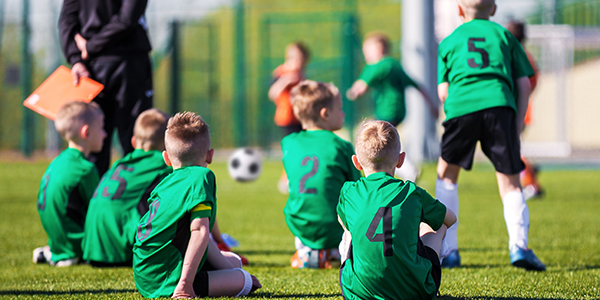
Stop Being Critical Towards Your Young Athletes
Coaches who over-correct or pick apart kids’ technique and criticize their players can undermine kids’ confidence and cause them to perform poorly and lose their enjoyment for the game.
Coaches often get in the habit of pointing out only mistakes in their play or technique. They might say, “You forgot to run back on defense,” or “Why didn’t you make that easy shot?” or “Stop throwing three-pointers. You’re not making them.” Young athletes look up to their coaches and want to please them. When coaches are critical, it hurts kids’ confidence and makes them perform tentatively. In fact, when coaches push young athletes too hard, yell at them or criticize them, the kids are more likely to drop out of sports.
Kids who are constantly corrected by their coaches lose the joy and freedom that helps them play well. When they’re criticized, they often over-think their game. They’re afraid of making mistakes or doing things that will make their coach give negative feedback.
In addition, criticism tends to prompt kids to pull away or get angry, instead of trying to initiate constructive communication with the coach. They don’t want to hear negative things about their performance constantly.
Coaches should point out mistakes and how to correct them, but should also reward successes and focus on the larger picture — that young kids are playing sports to have fun and learn valuable life lessons.
Coaches should always find something positive to say about young athletes’ performance. For example, “You pushed yourself really hard, you should be proud,” or, “I think you trapped the ball really well today.” In fact, the Positive Coaching Alliance says that young athletes do best when coaches offer a “specific, truthful praise” five times for every one time they offer constructive criticism.
It’s important for coaches and parents to understand that mistakes are inevitable. There’s no such thing as a perfect performance. Kids are human too and they will learn from their mistakes.
When coaches criticize players, in some cases they’re trying to motivate them to change their behavior. Pointing out flaws is not the best way to do this. Instead, coaches should reinforce the behavior they want young athletes to exhibit. If a child is a good team player, for example, the coach should reinforce that behavior. This boosts kids’ confidence and success. Parents should make sure that coaches are communicating positively with their kids. If a child seems frustrated and negative after practice, or mentions dreading practice and games, parents may need to meet with the coach to discuss possible solutions.
Related Sports Psychology Articles
- How Youth Sports Coaches Can Build Resilience in Kids
- How to Deal With Bully Coaches
- What Can Parents Do When Coaches Bully Their Sports Kids?
*Subscribe to The Ultimate Sports Parent Podcast
*Subscribe to Peak Performance Sports on Youtube
Download a free sports psychology report to improve your mental game!
Sports Psychology Coaching for Young Athletes

One-on-one mental performance coaching is the fastest and most effective method to improve your athletes’ mental game, boost their performance, and make lasting changes. And as a bonus, parents learn what to say to help young athletes feel confident and thrive in sports. Please call us at 888-742-7225 with your questions.

I feel as though this generation of kids are harder to coach now. They are not motivated and are quick to make an excuse before they make a change. I not saying this is all kids but definitely the majority of them. As a coach I have to be very strict and not leave any gray area. I think parents are parenting a lot differently these days and it’s affecting their kids. They allow them to quit, make excuses, and not work for things. This is frustrating as a coach and makes coaches coach more negative. I don’t believe in degrading kids but strict coaching produces results. Sports have evolved so much you constantly have to tell kids what they are doing wrong to catch up.
It depends on what level you are coaching the kids at. This article states also that you must get your message across but coaching kids and anyone for that matter there’s different ways to coach different people. Some take strict criticism well, some shut down. Some take joking around about mistakes well but understand through a joke what they did wrong, others don’t understand sarcasm. With kids you coach personalities as much as you do technique. That’s where many coaches fail kids.
So many youth sport coaches think they can improve a young team and often times they coach “old school.” Yelling, very little positive feedback, yanking a player put of game at first error or mistake while leaving other players in the are perceived to be better athlete but continue to make error after error. Yes kids are different these days because the world as we knew it is NOT the same. Sports have changed, rules, interactions, “coaching” has to change!!! And it’s not just about winning or losing or participation, it’s about teaching skills, development, COACHING EACH & EVERY PLAYER!! That’s where improvement comes for the athlete and then for the team!!! I have a motto, coach to the weakest player in your team and you’ll gain more for the team!! More knowledge, more experience, more joy of the game, more love of the sport. And become a better coach!!
Hi, I need some advice about this subject. Would you be willing to chat for a bit.